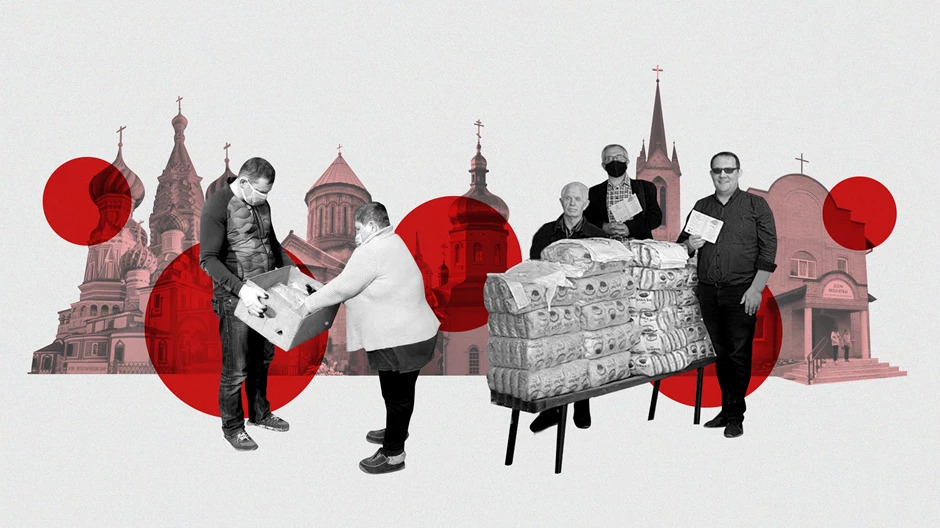5 Pandemic Lessons from Eurasia’s Evangelical Churches
9.29.2020

How congregations in the former Soviet Union are responding to the coronavirus challenge can help the global church think better about buildings, young professionals, and persecution.
EDITOR’S NOTE: This story was first posted by Christianity Today on July 1, 2020.
For many Western Christians, Eurasia is uncharted territory, and no less so amid this pandemic. In the midst of troubling COVID-19 tallies from the US and Europe, little is heard about what is happening in this strategically important region, situated with Europe to its west, China to its southeast, and the Muslim world to its south.
Yet the way local evangelical churches are responding to coronavirus challenges speaks volumes about their way of life and ministry, as well as their future missions potential.
National church leaders testify that the situation in Russia—with more than 640,000 confirmed cases, the third-worst reported outbreak in the world after the US and Brazil—and other Eurasian nations is alarming. Health systems, economies, transportation, and security systems are on the verge of collapse. Mass testing for COVID-19 is not happening. Governments deny access to reliable information. And all the while the war in Ukraine continues, and restrictions on religious freedom and human rights increase in Russia, Belarus, and Central Asia.
The former Soviet Union is a gray zone where hybrid systems have emerged which imitate the developed world while using talk of democracy, free markets, rule of law, independent media, freedom, and human rights to mask their absence. Given these circumstances, evangelical churches are under constant pressure both from government authorities and wider society, which are dominated by either aggressive Orthodoxy, Islamism, or a secular Soviet mindset.
However, the challenge of the pandemic has lit a spark which casts light on the little-noticed but active and essential role of evangelical churches in this gray zone. Based on my extensive conversations with local leaders, here are five lessons that Christians worldwide can learn from their brothers and sisters in Eurasia:
Lesson 1: When the government is helpless and public institutions are paralyzed, the church is on the front lines.
Under the circumstances, people have no one to turn to other than the church and volunteers. And this creates unprecedented opportunities for sharing the gospel beyond church walls. Regular church members serve as agents or angels of hope for thousands of people paralyzed by fear and poverty. When regular church activities come to a halt, it prompts many young Christians to begin thinking about what they can do for others.
For example, Sergey, a young Russian pastor from Buryatia (a region of Siberia bordering Mongolia), shares his experience:
“Jesus said, ‘Go and make disciples of all nations,’ and our government said, ‘Stay home.’ We were faced with the question of how to help people without breaking the law. Our team registered as volunteers and received special volunteer movement permits. Some of us sewed masks, others collected and distributed food donations to those in need, and others answered calls to a hotline, offering much-needed counseling and encouragement.
“One day we were asked to visit a woman who had been severely beaten by her husband. She had gone blind and was alone. We expected her to have a lot of questions about how God could have allowed this to happen to her, but instead she eagerly listened as we told her about Jesus and she prayed to accept Him as her Lord and Savior. We prayed for her, for healing for her soul, spirit, and, of course, her eyes. She is very lonely and would like us to visit more often to tell her about God. After encounters like that, you begin to appreciate things you almost didn’t notice before and took for granted: your ability to see, hear, walk, and live.”
These positive examples serve to introduce many people to the church and change their attitude towards it. “All non-Orthodox churches are considered illegitimate in Russia,” said Sergey. “However, now a lot of good things are being written about us online and on TV. While before the evangelical church was considered a sect, now we are practically heroes!”
Please click here to continue reading.
Dr. Michael Cherenkov, Executive Field Director
and Mission Eurasia Field Ministries Leadership Team
michael@missioneurasia.org
